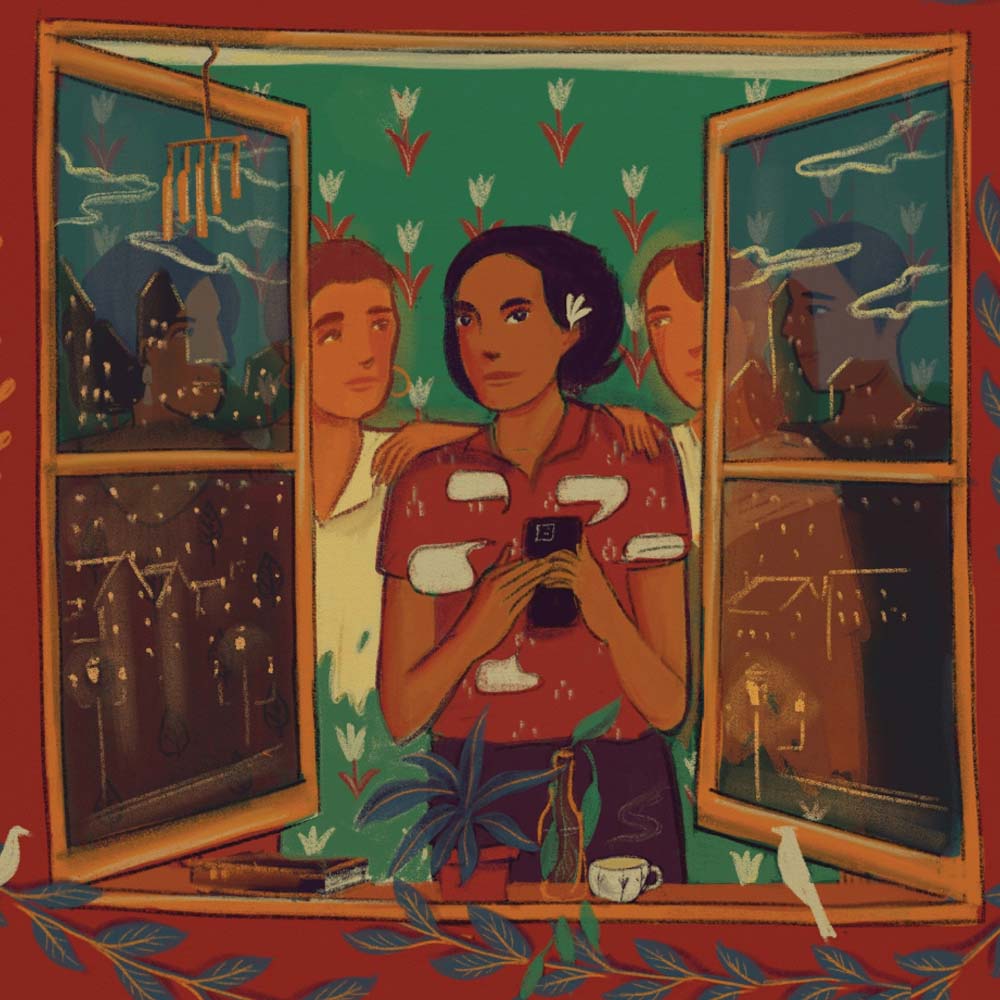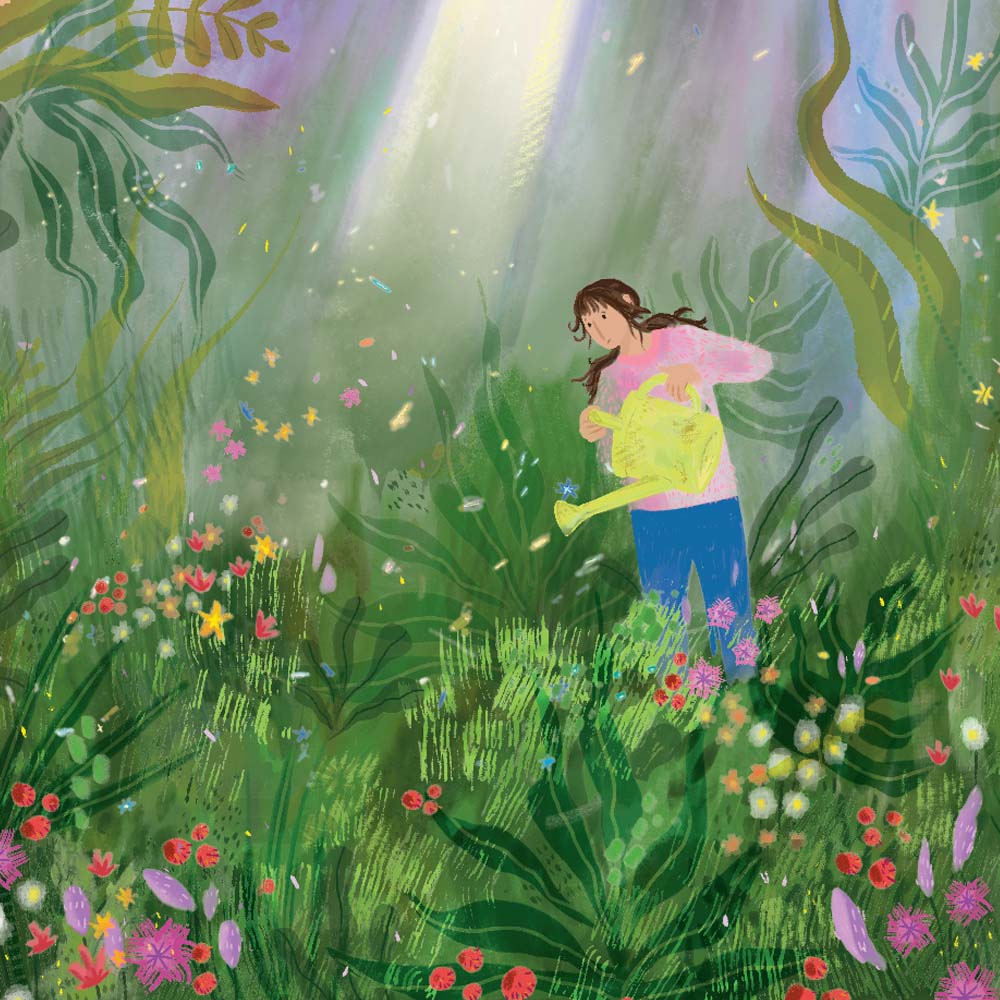Main navigation



Sometimes I find old pieces of catharsis. I say so because even though I've engaged in therapy for my madness, I've only found solace in writing. Everything I feel, every thought that occupies my being, every shadow of doubt and heartbreak, can be found on scraps of paper, on the last page of my notebooks, or in my digital documents.
The one that I found recently reads as follows:
"There's this feeling inside me ready to explode. Like a grenade? Is it a cycle? I don't know. All I know is that I'm tired of it. I'm done being angry. I just want to let out a cry. A sigh. Without anyone worrying that I'm depressed again. I want them to know I'm giving a perfectly normal reaction. I've been well for over a year. I will be better until I'm not, and like before, and unlike many, I will reach out. But, now - at this moment - I need to let it be. I need to let it be."
This piece goes back to when I didn't know I had an enemy. All I knew was that my mind plotted against itself. But that was okay because I thought, doesn't everyone else's mind do it too? At least at some point in time?
It was only in 2015 that I had the best and worst year of my life simultaneously, but haven't I said this about all the years I've been alive?
2015 was when a possible diagnosis of the said enemy was disclosed. I swear, somewhere I always knew, and my extensive research only confirmed my bias. I remember reading "All The Bright Places" by Jennifer Niven and thinking I could relate spiritually to both Violet and Finch.
But, of course, stigma doesn't play well with a 15-year-old. You get scared when you're perpetually a witness to the abuse school children afflict upon each other, especially verbally. When you witness extreme turmoil in a dysfunctional household, you experience perpetual shame and fear. You don't want to be called "Crazy, hysterical bitch" by Raj because you opened up about your feelings. The only bit of information I was willing to accept was that I was susceptible because of the inherited gene from my father.
The banal issue with mental health issues, as with many other illnesses, affects the entire social system of a person. But the very bona fide problem with mental health concerns is that most people don't believe it's real, and those who do, don't understand its intricacies and how to engage with someone going through it. But for some reason, I could always discern my father's plights, maybe because our melancholy was attuned.
For one with a diminished sense of imagination or who only values empirical data, I would always coax them to scan my brain to check if I would lie about having an unhealthy mind. It baffles me to remember incidents when someone would dismissively say- "Depression is a cry for attention!"
It most certainly isn't, but even if it may be so, isn't it a duty as human beings to ask - Why is there a cry for attention?
It was my mother who made that effort to de-stigmatize my illness. She saw me aching, even though there wasn't an external wound. But only there was. As is the case with so many people, it goes unnoticed. I wasn't eating, I was sleeping as if my life depended on it, and my bed had this force to keep me in, so much so that I just gave in. I continuously thought about dying or getting a terminal disease. I wished for cancer to chance upon me so that I could ask for mercy in death because my pain was invisible to all.
But my mother saw it. She saw it all.
She took me to a therapist, and that is when my pain received a name. The scary part about living in a country that undervalues Mental Health is the quality of the available practitioners.
Initially, I felt my cry for help answered. Cognitively, it is thought that the magnification of problems and hopelessness. Is quite common and often an antecedent of mental health concerns. While my mind had doomed me with the thought —
"What if it never gets better?"
My therapist challenged it with a simple —
"What if it does?"
It seems extremely simple. But this line still resonates in my heart because it saved my life. With everything going wrong in the world, my life, and my brain, I never saw promise in the future.
But after a few sessions, when my therapist was officially sharing the diagnosis, he said something that held me back for a very long time —
"You have anxiety, especially social anxiety. Your depression is at a mild level right now, but if you don't take care of yourself, we'll have to put you on antidepressants, making you suicidal."
I've done him the courtesy of using more subdued words. A psychological technique was likely to persuade me out of my woes. However, being a postgraduate in Psychology, I feel Mental Health is, more often than not, about creating a safe space.
Of course, I put a band-aid to my plights for a little while, but a band-aid can't be a substitute for stitches.
In 2018, I lost my father to cardiac arrest. I was grieving, but I stopped my wounds from overflowing. The band-aid was ripping on its own, little by little.
I was doing well academically, financially, and even family-wise. However, a heartbreak and three panic attacks later, with fears that I might trigger my mother gnawing at my entire being, I swayed towards courage. I let her know I felt that I needed therapy.
I vividly remember her response. She was watching TV then, but when she heard me, she hugged me and asked — "What happened?"
I told her, "I've had panic attacks. My body is responding to fears, with no triggers sometimes. The horrid sensation that is a Panic Attack."
"I'm going to find you the best therapist. You'll see." And she did.
What often helps in therapy is a client willing to change, and I was desperate for change. So much so that I did everything my therapist asked me to religiously. It all went smoothly until one day, mid-session, I started crying. I had no idea what triggered my tears. I wasn't anxious, just absurdly despondent. In this session, my therapist surprised me and told me I had PTSD and needed antidepressants.
I was defensive. I echoed my previous therapist's words. And she reasoned with me --
"In the future, when you become a therapist and see someone in immense pain, would you tell them not to take medication, even if there is a chance it will help them?
I felt embarrassed. A person who had been preaching about Mental Health for years was being so ignorant toward herself and a portion of the population that stays alive because of them.
My mother took me to a Psychiatrist referred to us by my therapist. As was my mother, I was skeptical at the start because my father was on and off pills for years, and his recovery couldn't be so.
Since that day, I've been on antidepressants, living a more fulfilling life than whatever bits and pieces of liveliness I'd encountered. I have become self-reliant enough with my thoughts and emotions and depend on my Psychiatrist and medicines for the balance in my brain. The best part is that I've never had a suicidal thought.
My journey has made me introspect on the need for Mental Health Professionals that are not just empathetic but compassionate. The road to recovery from developmental trauma is lifelong. My new therapist has helped to navigate the waters with self-compassion and honor my battle scars.
We have allowed fear to co-exist with courage. And with that, today, I am a trauma-informed psychologist and writer working toward de-stigmatizing mental health, creating safer spaces, and initiating dialogue with people to create inclusive spaces for everyone.
how helpful was this page?
Feedback helps us improve our content and resources to make the experience better for everyone.






